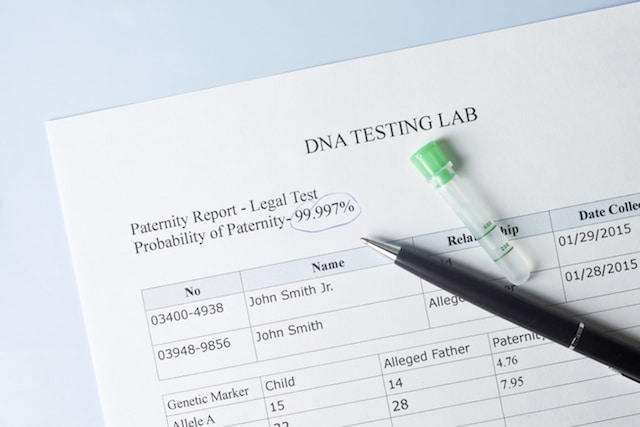It is a bedrock of California family law that a biological father of a child is required to provide financial support to that child, regardless of whether the father was ever married to the mother, or if he even knew of the child’s existence. But before a California court will require that a man pay child support to a child that he fathered, the paternity of the child will have to proven to the courts. Sometimes this requires a paternity test, but not always.
Paternity and What It Means in Family Law
Paternity is simply a legal determination of identifying the biological father of a child. This is important not only for determining whether a man should be required to pay child support until the child reaches the age of 18 (or longer), but is also important for getting access to medical records, applying for government benefits, custody and visitation issues, and determining whether a child is a beneficiary in some probate (distributing an estate after a father’s death) and insurance issues.
It is important to determine paternity even if you think that the putative father does not have the funds or the willingness to pay child support. By establishing paternity early on, you will make it easier to obtain child support in the future. Furthermore, the father will face criminal penalties if he refuses to pay child support after ordered to do so.
When is a Paternity Test Required?
In short, paternity must be established before a court will order child support, but how paternity is established will depend based on the circumstances.
If a man was married to the mother of the child at the time the child was born, the law will presume that the man was the father of the child. This doesn’t mean, however, that paternity is a done deal. What it means is that, if the man presents no evidence to rebut this presumption, then the court will presume he is the father, and paternity is established. But if the man believes another person was the father (i.e. through an extramarital affair), the man can have a paternity test done to show that he is not the father. If that is the case, the court may find that paternity was not established and refuse to order child support.
If a man was not married to the mother of the child at the time the child was born, then there are two primary ways to establish paternity:
- Have the father voluntarily sign a Declaration of Paternity
- Get a Court Order establishing paternity
If the father signs a Declaration of Paternity, then DNA testing will not be required, but the father cannot be forced to sign such a declaration. If he will not sign the declaration, you may go to court to ask the court establish paternity through a court order. As part of this process, the court may require that the putative father undergo DNA testing. If no legal father had previously been established, then a positive DNA test will usually result in a court order establishing paternity.
Get Help With Your Paternity Issues From a California Family Lawyer
At the Law Offices of Kelley C. Finan in Torrance, we work with both men and women to help protect their rights in paternity actions and resolve all matters relating to child support, custody, and visitation rights. Call our offices today to schedule a consultation.

